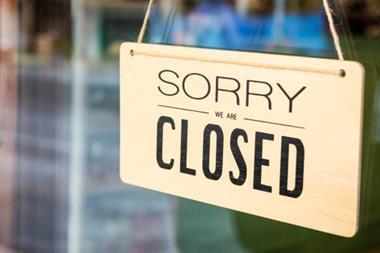It seems that every country in the world has a similar saying when it comes to family businesses.
So far, I have heard the following interpretations:
- “Rags to riches and back to Rags in three generations”
- “Shirt sleeves back to shirt sleeves in three generations” (U.S.A)
- “From the Stables to the stars, back to the stables” (Italy)
- “Rice bowl back to Rice bowl in three generations” (Asia)
And, of course, there is my own particular favourite:
- “Clogs back to clogs in three generations” (Lancashire)
It must have been on the mind of many an owner of a business, either big or small, when the time comes to pass on the reins or not.
Do they simply pass them on without regard to the future of the business and its people? Do they disregard whether the next generation is suitable or capable? Or ignore how many years the next generation has working in the business or not? And, of course, there is also the question of whether the next generation actually wants it or not.
It’s an interesting perspective to take, as I am firmly in the camp of “one generation to the next” and, I would like to think most family businesses would secretly or not, like to see their business flourish for future generations.
Please keep that rose tinted view point in your mind, while we discuss the numbers. Did you know that?
- More than one half of all owners are 50 years of age or older
- More than three quarters have their personal wealth tied up within the business.
- More than 60% do NOT know the value of their business.
- More than two thirds do NOT have a business succession plan.
- 70% FAIL to successfully transition their business to their
Success of Business transfer from one generation to the next:
- 88% of all owners do have a desire to transfer their business.
- Generation 1 – Generation 2 there is a 70% failure of transfer
- Generation 2 – Generation 3 – There is a 85% failure of transfer
- Generation 3 – Generation 4 – There is a 96% Failure of transfer
Success of wealth transfer from one generation to the next:
- 70% Failure from Creator of wealth to Successor
- 85% Failure of wealth from 2nd generation to 3rd Generation
- 94% Failure of wealth from 3rd Generation to 4th Generation
So we now have a recipe for disaster looming. The original owner creates a successful business, either doesn`t prepare the next generation to take on the business or the next generation are incapable of progressing the business. And whatever wealth is left, the second and third generation squander their unearned riches. Therefore Rags to Rags in three generations.
You can never fall back on that old line from the film The Godfather, "It’s not personal Sonny. It’s strictly business.” In my opinion, everything is personal in a family business. Just look at the Corleone’s – as a family - maybe things would have ended better if they’d had a little outside advice. And maybe Michael wouldn`t have had to kill his older brother Fredo.
So just where do you go from here? Depressing isn`t it!
I went to a seminar about five years ago, all about family businesses, and the key speaker was the chief executive of Clark`s shoes. He wasn`t a direct family member but was married to one. His opening gambit was for the whole audience to stand up, which we did. Then slowly he asked us all, “How many family members were in our businesses?”
From one to three, three to five, five to ten members. And as the right number fitted our business, we had to sit down. He was the only one left standing. There were in excess of 240 family members, with shares, in and out of the business, who thought they had a major roll within the business, and come the annual general meeting thought they all owned the business, whereas in fact their roll and stake were very minor.
His main point of advice, was to: “Keep the shares in the business tight.”
The fewer the shareholders the better. His argument was to not dilute the shareholding among your family, if none of the family is interested in the business, better to sell them back and enjoy yourself.
It’s natural for a family business to want members of the next generation, and it’s healthy to expose them to the company at an early age, so that they can make an informed decision about whether to pursue a career there.
But, and it is a big but, a job with the company shouldn’t be an entitlement.
Those who want to join the business deserve no special treatment. In fact entry into the business should be somewhat harder, having to earn the right by working their passage.
It is suggested by some family business consultants that members of the family should:
- earn a university degree first—and in some cases a post-graduate degree
- gain several years of relevant professional experience outside the family business,
- and apply for open positions in competition with non-family applicants.
At one European firm, family members applying for a job must be at least 26 years old, have earned a master’s degree in business or engineering, speak three languages, and have won two promotions within five years at a non-family firm. And they are given only one opportunity to apply: If they’re turned down, they must go elsewhere.
The family within a business, working alongside colleagues who have in fact given their working life to that family, a trust is created – a bond of confidence – knowing that they will be looked after when their lot is done.
Sometimes the head of the family may have to make harsh decisions sometimes to protect the business, ensuring all the livelihoods are protected, as my own father often said: “The needs of the many outweigh the needs of the few.”


























No comments yet